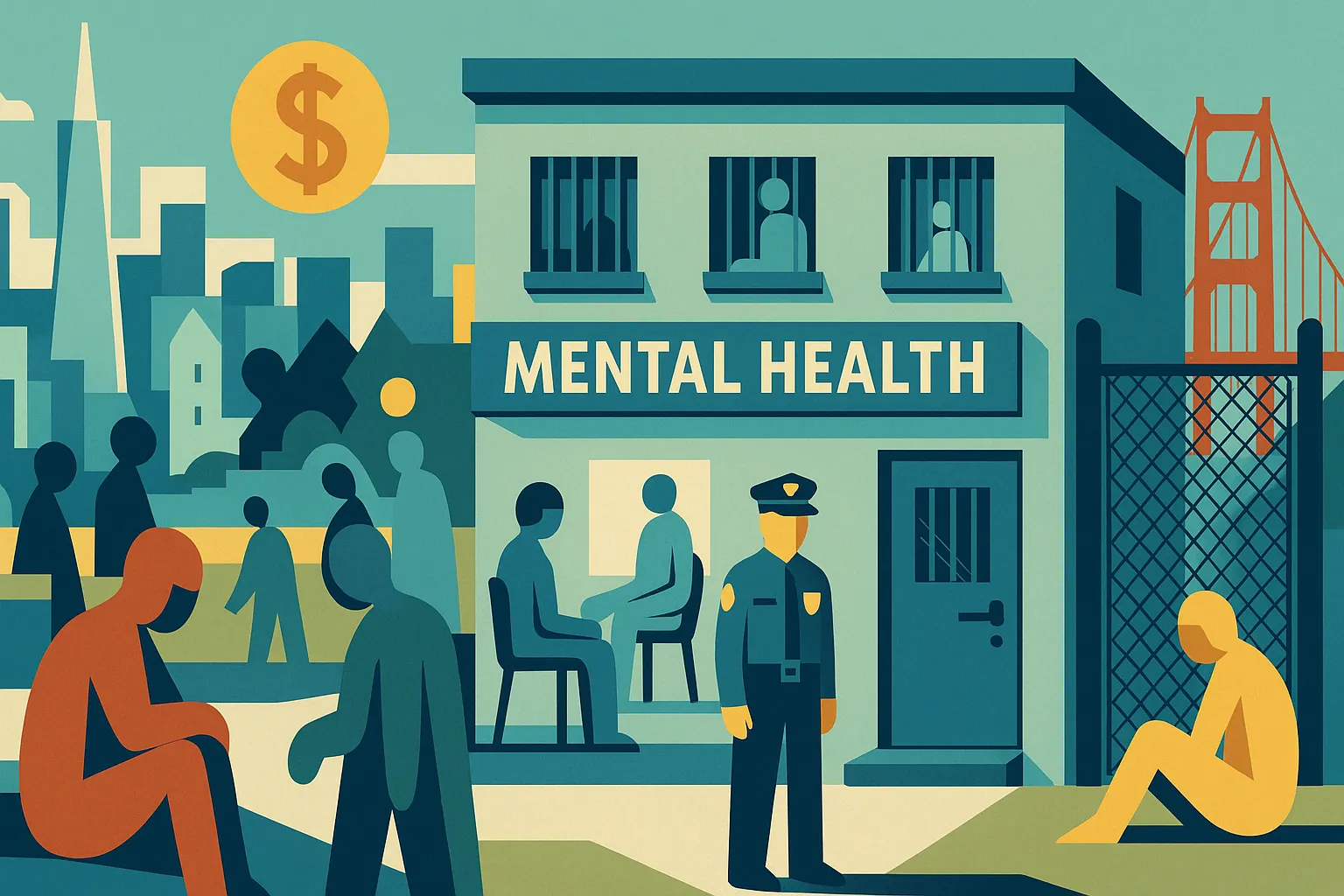
The Facts
Gilberto Lopez-Duarte had been under involuntary conservatorship since 2022 at Crestwood Healing Center for prior sexual offenses. In July, he was expelled from Crestwood after allegedly sexually assaulting a fellow patient at the locked psychiatric facility, according to Jonah Owen Lamb at The Standard. He then spent three months in SF General's secure psychiatric ward while city officials desperately searched for another locked facility willing to accept him.
No facility would take him. On October 2, with no other options, officials placed Lopez-Duarte in unlocked transitional housing in the Mission. Eight days later, police arrested him again—this time for drug possession and another alleged sexual assault.
The victim was a homeless woman.
The Context
GrowSF research revealed California systematically dismantled its state hospital system, slashing beds from 37,000 in the 1950s to just 5,724 today—while the state's population more than doubled. Today, only 22 San Franciscans are housed in state hospitals.
Making matters worse, federal IMD exclusion rules ban Medicaid reimbursement for psychiatric facilities with more than 16 beds. This forces San Francisco taxpayers to cover the cost with zero federal or state support. When private facilities like Crestwood refuse problematic patients, the city literally has nowhere else to turn.
The math is stark: California operates 11.7 psychiatric beds per 100,000 residents, compared to the national average of 22.7 beds. San Francisco's most dangerous psychiatric patients are competing for a handful of spots in an infrastructure that was deliberately destroyed.
The GrowSF Take
This preventable tragedy exposes a psychiatric care system hollowed out by decades of policy failures. California dismantled state hospitals in the name of "deinstitutionalization" but never built the alternatives it promised. Instead, the state shifted the burden to cities.
Cycling dangerous individuals between emergency rooms, jails, and unlocked housing protects no one. Not the mentally ill who need intensive care, not the public who deserve safety, and not the vulnerable people who are victimized.
The State has dragged its feet for too long, and even still blames Ronald Reagan for the mess. But it's been almost 60 years since Reagan signed the bipartisan bill dismantling our mental health infrastructure, and we now have no one to blame but ourselves for letting it continue. It's time for California to step up, build the necessary locked psychiatric facilities, and fund them properly.
Generate a Personalized Email to the Board of Supervisors
To:
Sign up for the GrowSF Report
Our weekly roundup of news & Insights